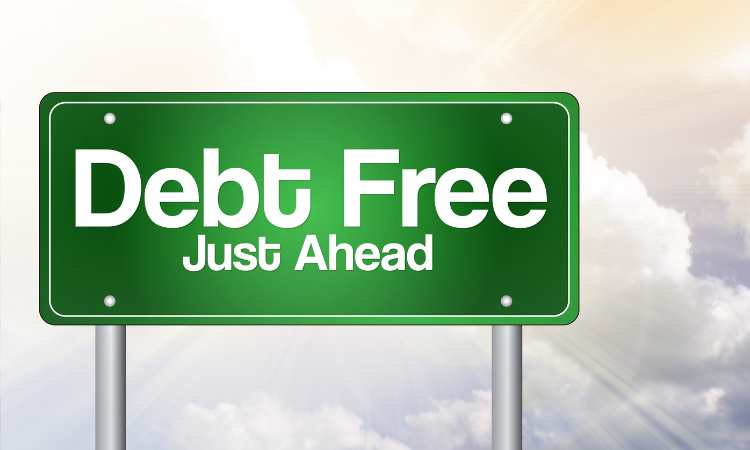If you’re like most people, you probably have at least one credit card and maybe even a few consumer loans. Like any debt, those monthly payments can start to feel like a weight around your neck. But don’t worry – there are ways to get out of debt that won’t involve filing for bankruptcy and will get you on your path to true financial freedom. In this post, we’ll outline some of the best strategies for getting rid of your consumer debt once and for all. So read on, and start planning your path to financial freedom!
Stop using your credit card
If you want to get out of debt, the first thing you need to do is stop (or seriously cut down on) using your credit card. This may seem like an obvious solution, but many people continue to use their credit cards even after they start having financial difficulties. If you’re serious about getting out of debt, you need to make a commitment to yourself not to use your credit cards unless there is an absolute emergency. This is the first step to stopping the credit card debt from piling up.
Create a budget
Another important step in getting out of debt is creating a budget. This will help you track your spending and figure out where you can cut back. When creating a budget, be sure to include all of your regular expenses, such as rent or mortgage payments, utilities, groceries, and transportation costs. Once you know how much you’re spending each month, you can start looking for ways to reduce your expenses.
Make a plan to pay off your debt
Once you’ve stopped using your credit card and created a budget, it’s time to make a plan to pay off your debt. If you have multiple debts, you can start by paying off the one with the highest interest rate first. As you’re making payments on your debts, be sure to keep track of your progress so you can see how much closer you’re getting to being debt-free. Of course, this can become overwhelming to keep track of all the debts from multiple accounts.
A simpler solution is to combine your debts into one loan that you work to pay off every month. You can use a debt consolidation loan to combine all your debts into one monthly payment and then work on paying off that ONE loan instead of worrying about multiple lenders calling you.

Consider a Debt Consolidation Loan
If you’re struggling to make payments on multiple debts, a debt consolidation loan could help. With this type of loan, you’ll be able to combine all your debts into one monthly payment. This can make it easier to stay on top of your finances, and may even help you save money on interest over time. When choosing a debt consolidation loan, be sure to shop around and compare rates and terms from different lenders. You’ll also want to make sure that the loan you choose is one that you can realistically afford to repay. Otherwise, you could end up in an even worse financial situation than you are in now.
If you’re considering a debt consolidation loan, remember that it’s important to understand the terms and conditions before you sign on the dotted line. Be sure to read the fine print and ask questions if there’s anything you don’t understand. Taking out a loan is a big financial decision, so you’ll want to be sure that it’s the right choice for you before you commit.
Create a budget and stick to it
When it comes to saving money and getting out of debt, creating and following a budget is key. Tracking your spending and knowing where your money is going is the first step to saving money. Once you have a good handle on your spending, you can start setting aside money each month to reach your savings goals.
There are a number of ways to create a budget, but one of the simplest is to use the 50/30/20 rule. Under this rule, you would allocate 50% of your income to essential expenses like housing, utilities, and food. 30% of your income would go towards non-essential but still important expenses like entertainment and travel. Finally, 20% of your income would be dedicated to savings and debt repayment.
If you can stick to a budget, you’ll be well on your way to saving money and reaching your financial goals.
Pay more than the minimum payment each month
If you have any debts, it’s important to make more than the minimum payment each month. By paying only the minimum, you’ll end up paying a lot more in interest and it will take longer to get out of debt.
If you can, try to make a double payment each month or put any extra money you have towards your debt. This will help you get out of debt faster and save money in the long run.
Invest in yourself
Investing in yourself is one of the best things you can do for your financial future. When you invest in yourself, you’re investing in your ability to earn more money and reach your financial goals.
Some ways to invest in yourself include taking courses to improve your skills, investing in your education, and starting your own business. By investing in yourself, you’re setting yourself up for success both now and in the future.
Live below your means
One of the best ways to save money is to live below your means. This means spending less than you earn each month and putting the rest into savings.
If you can live below your means, you’ll be able to save a significant amount of money over time. This will give you a cushion to fall back on in case of an emergency and help you reach your financial goals sooner.
Automate your finances
Automating your finances is a great way to save money and stay on top of your finances. When you automate your finances, you’re setting up automatic payments for things like your mortgage, car payment, and credit card bills. This way, you don’t have to worry about remembering to pay your bills each month. You can also set up automatic transfers to your savings account so you can start building up your emergency fund or other savings goals.
Make More Money (Increase your income revenue streams)
Sell unnecessary belongings to make extra money
If you’re looking for ways to make some extra money, decluttering your home and selling unwanted items is a great place to start. You can have a yard sale, sell items online, or donate them to a local charity or thrift store. Not only will you earn some extra cash, but you’ll also feel good knowing that your unwanted belongings are going to a good home.
Start a side hustle
There are endless opportunities for starting a side hustle these days. Whether you’re a whiz with social media, a talented writer, or have a great eye for fashion, there’s likely a way to monetize your skills. If you’re not sure where to start, sites like Fiverr and Upwork are great places to find freelance work.
Get cash back on everyday purchases
There are lots of ways to get cash back on everyday purchases, from using a rewards credit card to sign up for cash-back apps like Ibotta and Rakuten. By taking advantage of cash-back opportunities, you can earn a significant amount of money over time without having to put any extra effort into it.
Invest in yourself
One of the best ways to make more money is to invest in yourself. Whether you’re taking a course to learn new skills or investing in your own business, putting money into your own development is always a good idea. Not only will you be able to earn more money in the long-run, but you’ll also be gaining valuable skills and knowledge that will benefit you in all areas of your life.
Make a plan and stick to it!
There are a lot of things you can do to improve your financial situation. But, if you don’t have a plan and you’re not disciplined about sticking to it, you’re not likely to see much progress.
Sit down and create a budget. Figure out where your money is going each month and what you can cut back on. Then, start following your budget and make sure you stick to it. It may take some time to get used to living on a budget, but it’s worth it if it means you’re able to get your finances under control.
Making a plan is one of the best things you can do for your financial future. When you make a plan, you’re setting yourself up for success by laying out your goals and how you’re going to achieve them.
Creating a budget and sticking to it is a great place to start. But, first you need to focus on paying off your high interest debt so you can get ahead of your bills. By making a plan, you’re taking control of your finances and setting yourself up for a bright future. Remember, it will take time and effort but if you are willing to put in the work, you can achieve your goal of becoming debt free.

Erika Finn, founder of Stacking Acorns, is an attorney who graduated from law school at University of California, Berkeley. She was a member and editor of the California Law Review and won the Prosser Prize for Legal Accounting. She holds a Master’s Degree from the University of Southern California (USC) and a Bachelor’s degree from Indiana University- Bloomington. Stacking Acorns is a personal finance website for women by women. We help mid-life women achieve financial freedom through real estate investing and other streams of passive income.